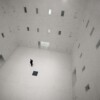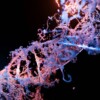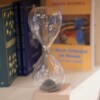“Spring break” is a misnomer for faculty and staff at colleges on the quarter system like mine. One of my colleagues calls it “spring broken.” Most quarter systems require you to fit the latter two-thirds of your academic year into the first half of the calendar year. This compresses the time between Winter and Spring quarters to a mere week of both grading for Winter and prepping for Spring.
My Spring prep involves a physical chemistry course, so each year I think of a piston where a heavy weight pushes down on air and increases its temperature. Our “Spring break” compresses time rather than space, but it heats things up all the same.
So, of course, this is the time when several additional surprises interrupted me in late March. On the last lab report from Winter quarter, Turnitin gave me red flags showing a percentage of students’ reports had been copied from another source, and I had to examine the similarities and decide how serious the copying was. Advisees had to suddenly change their registrations for Spring quarter classes, and I had to help them find classes that would fit their schedules and prerequisites. Registered students in my Spring classes asked for a new online-only section to accommodate their pandemic living situations. For each of these, I wrote long email chains and before I knew it, hours had passed, increasing the pressure that much more.
This wasn’t hard work, because I like solving problems, and these problems were eminently solvable. Even the plagiarism seemed unintentional and limited, so it provided a teachable moment as I helped the students learn how to avoid it in the future. But it was still work, taking all morning and sapping my energy.
Physical chemistry came again to mind: the equation work = (force X distance). I wasn’t moving anywhere, but my fingers applied small forces over small distances to the keys, making electrons move in the computer and LEDs light up in the screen.
That apparent work was minimal compared to the unseen work going on. Electrical-chemical waves both like and unlike the electricity in the computer moved through brains (both mine and my correspondents’), moving sodium and potassium ions from one place to another, storing memories and plans. Conversations, negotiations, and schedules took form and strengthened physical connections among neurons, changing the structure of the brain.
This is what I told myself at the end of the day. The Spring classes still weren’t ready and the email inbox was more full. I had worked all day and wasn’t sure what I had to show from it other than mild exhaustion. Outside of classes, I also completed a grant review and drove an hour to a COVID-19 vaccination appointment to put my immune cells to work.
That’s a lot of force, distance, and time, and therefore a lot of work. Pressure is a good metaphor for academic work: it is by definition felt but not seen. Air pressure represents the average distance gas molecules travel before a collision, so it results from millions upon millions of tiny collisions, and it all starts to add up.
I have a metal bar about a meter long and a centimeter square that represents one atmosphere of pressure. Imagine balancing such a bar on your hand – it’s pretty heavy. That’s the same force as the pressure on every square centimeter of your skin. The psychological burden of a year-long pandemic increases that pressure, so that everyday tasks feel heavier. Perhaps the new normal is something like the old joke about walking to school uphill both ways in the snow.
Paul knew what that burden felt like. In 2 Corinthians, he wrote something that feels like today: “We are under all kinds of pressure, but we are not crushed completely.” (2 Cor 4:8 NTE) It’s just like Paul to acknowledge the pressure but to give hope, pointing out that we are not yet crushed — our bodies are created to endure under a heavy atmosphere. Just before that, Paul writes, “But we have this treasure in earthenware pots, so that the extraordinary quality of the power may belong to God, not to us.” (2: Cor 4:7 NTE) Our inadequacy and fragility points to the power of God.
“Power” is another term that chemistry borrows from physics. Both God’s metaphysical power and physical power make things happen and change the world. But God’s power is different. It is not quantifiable in physical units and is most evident in the crushing defeat of the cross. God’s pressure is gentle and meek, patient, and kind. It can be overlooked, shut out, pushed away, even unconsciously. If pushed away, it stands at a distance, watching and waiting.
Keith Ward writes of “the constant pressure of Divine purpose, manifesting at key points in the interconnected causal web of history.”1 God breaks through in thin places and unexpected times. Physical chemistry describes three kinds of systems: open, closed, and isolated. Scripture points to God’s power breaking in from outside our closed system, opening our universe.
You won’t find laws about God’s power in a physical chemistry textbook! Calculating our universe as a closed system allows us to apply the fundamental laws of physics and the ideal gas law of chemistry all the way back to the Big Bang with astonishing success. But that success backwards doesn’t always apply forward in time, as anyone who’s lived through the year 2020 can attest.
The philosopher Achille Mbembe decries the “belief today is that everything is potentially computable and predictable. In the process, what is rejected is the fact that life itself is an open system, nonlinear and exponentially chaotic.”2 As a teacher of physical chemistry, I can tell you that much the same statement has been made by Nobel Prize winners in Chemistry such as Ilya Prigogine.3 We can see extraordinarily deep backwards into time and outwards into space because the universe is consistent. Yet we cannot understand ourselves in the same way, nor can we see very far into the future.
This inability to predict what will happen is what makes the constant judgment of faculty life so exhausting and “imposter syndrome” so prevalent. When I saw that some students had copied a text, I had to judge intentions and extent. When I reviewed the grant proposal, I had to predict if these methods would give significant results. When I advised the student on registration, I had to not only project which classes they would take but had to try to discern with them which major was right for them. I wasn’t certain about any of this; in fact, each decision was a work of judgment pressed against a future of uncertainty and potential chaos.
The epistle of James was written to the scattered church, but it spoke to my scattered thoughts. When I need wisdom, I think of how James says to ask for wisdom and God gives generously. But James notes that something can interfere: my own ego, divided against itself and uncertain. The one who doubts (the “diakrinomenos”) should not expect to receive.
A Ph.D. disposes its recipient to become a “diakrinomenos.” James’s word is identical to Jesus’s word when he says in Matthew 21:21 and Mark 11:23 that we should ask without doubting. At the center of “diakrinomenos” is the word “krino,” which means “to judge” or “to discern” – “to peer review” is not far off. The prefix “dia-” intensifies that root into something like “fully separating” or “overthinking.” This is beginning to sound an awful lot like me.
As a chemist, I’ve taught a course titled “Separation Science,” so it’s unavoidably part of my job to “fully separate” things, even living things, into their atoms. As a faculty member, it’s my job to judge all these situations and to argue ideas.4 So there’s a tension between James’s warning and my faculty Professional Development Plan which calls for me to do the work of judgment.
I need wisdom to navigate this tension, and in James there are different kinds of wisdom. James contrasts God’s noncompeting power and heavenly wisdom with the earthly wisdom of physical laws and competition: “But the wisdom that comes from above is first holy, then peaceful, gentle, compliant, filled with mercy and good fruits, unbiased, sincere.” (James 3:17 NTE)
All of those adjectives are compatible with chemistry. Fully separating atom from atom is a sincere reflection of the truth of nature, if I do it carefully, repeatedly, and humbly. That is a gift of God — it’s when I become double-minded (“dipsychos” in the original Greek) that I start to copy the world’s contentions rather than God’s grace.
Luke Timothy Johnson describes how James sets the two kinds of wisdom and power against each other: “James has in mind the opposition between a view of the world (the wisdom from above) that is open to God’s creation-and therefore logically leads to practices of gift-giving, hospitality, and mutual assistance in a community of collaboration-and a view of the world (the wisdom from below) that sees the world as a closed system, which logically leads to practices of envy, competition, oppression, war, and even murder.”5 The logic is inescapable – those who live by the sword will die by the sword.
So who will rescue us from this cosmos of death? God did not stand far off, but came to us in the flesh, and even death could not stop his power from breaking in from above and opening up the system.
We have four collections of events where God opened the system of the world, at the end of each gospel narrative.6 In the second part of this post tomorrow, we will walk through one of these accounts where God’s wisdom and power pressed in from above, through the physical-chemical body of the risen Christ.
Footnotes
- Ward, Keith. Divine Action: Examining God’s Role in an Open and Emergent Universe (Templeton Foundation Press, 2007), X.
- Mbembe, Achille, and Torbjørn Tumyr Nilsen. “Thoughts on the planetary: An interview with Achille Mbembe.” New Frame 5 (2019).
- See Prigogine, Ilya, and Isabelle Stengers. Order Out of Chaos: Man’s New Dialogue With Nature (Verso Books, 2018).
- A version of “diakrinomenos” is used for the kind of debates faculty are supposed to encourage: e.g., the debate between Peter and the circumcised believers in Acts 11:2 and even the dispute between the archangel Michael and Satan in Jude 9. A good classroom discussion should be an act of thorough separation and judgment, after all.
- Luke Timothy Johnson. Miracles: God’s Presence and Power in Creation (Westminster John Knox Press, 2018), 26.
- And the rest of the New Testament for that matter!
























One Comment